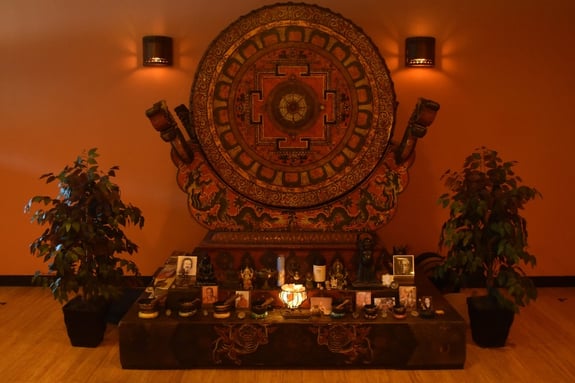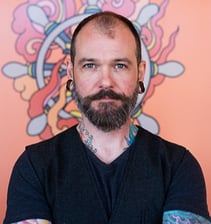 When Burning Wheel was just a dream in my mind, it always centered around the people who would come here. I knew we’d be weird and we wouldn’t be a good fit for everyone, but that was the point. I wanted to make a place where people could seek Truth on the journey to find themselves. I knew there had to be other people looking for a community of seekers. The Sanskrit word for community is Kula.
When Burning Wheel was just a dream in my mind, it always centered around the people who would come here. I knew we’d be weird and we wouldn’t be a good fit for everyone, but that was the point. I wanted to make a place where people could seek Truth on the journey to find themselves. I knew there had to be other people looking for a community of seekers. The Sanskrit word for community is Kula.
Burning Wheel Yoga School is more than a studio. It’s a life school, a place of connection and inspiration for those who participate and engage with the community.
We become like those we surround ourselves with. Access to inspiration is easier when in the presence of those who are on a similar journey with an aligned mission. In the words of Will.I.Am of the Black Eyed Peas, “It just takes one. That one gets another one. Next thing you know we got a billion!” Having a spiritual community is not something I was fortunate enough to have for most of my practice, but this community is not about me. It’s always been about you and what I want to offer you. I made it for you. I’m giving you what I have always wanted. I used to reference that line from the movie Field of Dreams. “If you build it (they) will come.” when we were trying to make this place a reality. And here you are! Thank you for being a part of this Kula.
Krishnamurti says, “The problem that confronts most of us is whether the individual is merely the instrument of society or the end of society. Are you and I as individuals to be used, directed, educated, controlled, shaped to a certain pattern by society and government; or does society, the State, exist for the individual?” “(relationship) is an interconnected challenge and response between two people… The relationship of two people creates society; society is not independent of you and me; the mass is not by itself a separate entity, but you and I in our relationship to each other creates the mass, the group, the society.”
So what is our relationship to each other in this Kula? What is the society we would like to see? Because what we create in the Kula is what we would like to see in the larger world. What we see in society today is not, I think, what we would like it to be. However, let's not fall into the trap of separating society into an “us and them” simplicity. We are society, and our relationships are society. So let's look at it clearly. When we observe our society and relationships, what is it we see? What would we like it to be? What action are we willing to take to make that change happen?
Krishnamurti again, “We talk about love, we talk about responsibility, duty, but there is really no love; relationship is based on gratification, the effect of which we see in the present civilization.”

I think Krishnamurti has it right. What most people call love is attachment. As we know, attachment creates suffering. Love is supposed to set us free, not put us into bondage. How is it that we can have it so backward? Look at it. Look at your relationships and those of others clearly. Is it selfless love? Or is it selfish gratification? Between spouses, is the relationship free, open, and supportive? Or is it wrapped up in ideas like “my partner is so beautiful, handsome, wealthy, etc?” With our children, “My child is so smart, beautiful, athletic, etc.” or could our relationships be, “These people are amazing! I wonder what they will do/create with my love and support?” Love is unconditional, which means I may not agree with or understand their choices. Those choices might even scare me, but they have to make me live a life of fulfillment. Can we allow them to be the perfect expression of the divine that they are?
What will our Kula, and then society be if each of us were allowed to completely fulfill what the divine is trying to do as us, through us? Can each of us go inward and get our selfish desire out of the way of each other's progress toward freedom and bliss? Our desire often becomes our fear. Our fear makes us feel insecure, and in that unsafe feeling, we project our fears out as jealousy (fear of losing someone or something to someone), envy (fear of not being enough), greed (fear of not having enough), etc. That is the undoing of our society. We are keeping each other from fulfilling our Dharma (duty, purpose) with selfish, limiting fears.
F.E.A.R. False - Expectations - Appearing - Real
Most of what we fear couldn't be further from Truth. Can we get out of the way and watch what happens? See what unfolds. Enjoy the mystery and the magic. I think it’s worth a try! We have to try something different than the same old broken paradigm.
Krishnamurti, “I think most of us realize the urgency of an inward revolution, which alone can bring about a radical transformation of the outer, of society. This is the problem with which I myself and all seriously-intentioned people are occupied. How to bring about a fundamental, a radical transformation in society, is our problem; and this transformation of the outer cannot take place without inner revolution.”
A committed 8-limb yoga practice helps to strip away everything that is keeping us from seeing Truth clearly. We are causing a paradigm shift in the fundamental way we view life as we move from thinking about me to us.
Christopher Wallis states that “(this tradition) holds that one thing alone exists: the divine, in various permutations. To say that God alone is real is the same as saying everything that exists is God, everything is divine…to experience this divinity in and as all things is the goal of the practice.”
When you look at your spouse, partner, lover, children, friends, neighbors, or colleagues, what do you see? Do you see the divinity within doing everything it can to be free, happy, and fulfilled? Or do you see a human plagued with desire, lost in ignorance and bondage? Are they a problem to be solved or a work of nature that needs your love unconditionally to flourish fully? Christopher Wallis, “The cultivation of this state of awakened freedom originally took place in the context of a spiritual community guided by a spiritual master. (He was called a master not because he was everyone’s boss but because he had completely mastered himself.)”
I do not accept the title of spiritual master because it would simply be untrue. I have not mastered myself…yet. I give you all my word that I am working on it as hard as I can every day. I’ve been at it for many years now, and I will do my best to guide and support you as you try to avoid the traps and pitfalls along your path.
Christopher Wallis shares, “It is important to note that initiates were not required to renounce their jobs, possessions, or family life. That is to say, the Tantra was mostly a “householder” path, and renunciates were the minority. The practitioners were people like you and me, and they dealt with many of the same challenges of everyday life that we face today. They joined the Kula that rejected the significance of caste, class, and gender divisions, and they practiced a life-affirming spiritual discipline.”
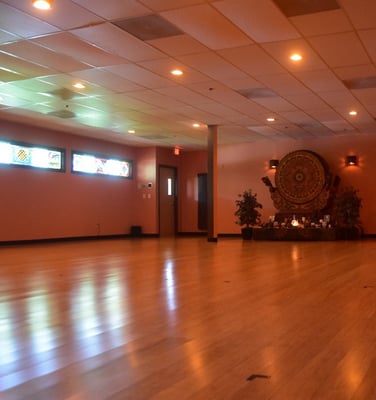 We hold that all sentient beings are inherently equal; that is, they are all equally incarnations of the One, regardless of caste, class, creed, gender, orientation, age, or ability. As such, all sentient beings have an equal right to autonomy (to whatever degree they can exercise it), which expresses the śakti (potency, capacity, power) most fundamental to consciousness itself (svātantrya-śakti). That said, no one has the obligation to aid another in the exercise of their autonomy, and nor does anyone has the right to impede such exercise, except when such exercise poses a danger, as far as one can honestly tell, to other sentient
We hold that all sentient beings are inherently equal; that is, they are all equally incarnations of the One, regardless of caste, class, creed, gender, orientation, age, or ability. As such, all sentient beings have an equal right to autonomy (to whatever degree they can exercise it), which expresses the śakti (potency, capacity, power) most fundamental to consciousness itself (svātantrya-śakti). That said, no one has the obligation to aid another in the exercise of their autonomy, and nor does anyone has the right to impede such exercise, except when such exercise poses a danger, as far as one can honestly tell, to other sentient
beings.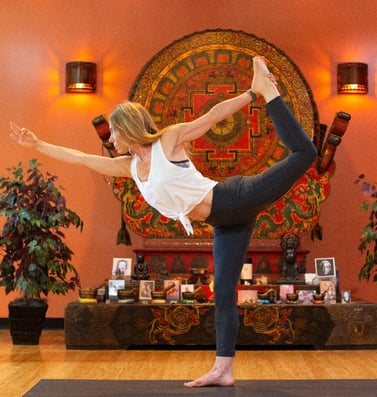 We hold that ‘good’ and ‘bad’ are mental constructs (and ‘right’ and ‘wrong’ even more so), and, having said that, we hold that the closest real-world approximation to ‘the good’ is contributing to the well-being of conscious creatures. Anything that contributes (as far as one can tell) to the well-being of conscious creatures in a given context (and it’s always contingent on context) can be called ‘good’ or beneficial or skillful.
We hold that ‘good’ and ‘bad’ are mental constructs (and ‘right’ and ‘wrong’ even more so), and, having said that, we hold that the closest real-world approximation to ‘the good’ is contributing to the well-being of conscious creatures. Anything that contributes (as far as one can tell) to the well-being of conscious creatures in a given context (and it’s always contingent on context) can be called ‘good’ or beneficial or skillful.
3.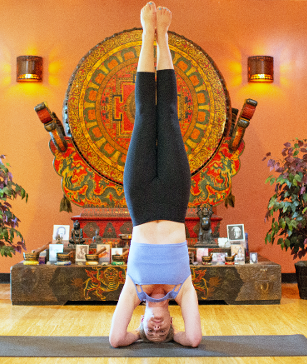 We hold that nothing is black-and-white, and so discernment is necessary. Discernment is never perfect, and so ‘mistakes’ are inevitable in the process of attempting to live by these values. ‘Mistakes’ are, in fact, part of the feedback mechanism inherent in the pattern of reality that allows us to hone our power of discernment. The exercise of discernment is necessary to live these values, and we acknowledge that the capacity for discernment can vary widely, so we do not blame, judge, or condemn others (or ourselves) for their mistakes.”
We hold that nothing is black-and-white, and so discernment is necessary. Discernment is never perfect, and so ‘mistakes’ are inevitable in the process of attempting to live by these values. ‘Mistakes’ are, in fact, part of the feedback mechanism inherent in the pattern of reality that allows us to hone our power of discernment. The exercise of discernment is necessary to live these values, and we acknowledge that the capacity for discernment can vary widely, so we do not blame, judge, or condemn others (or ourselves) for their mistakes.”
May our Kula be a blessing to all beings and to being itself, Om gam Ganapataye Namaha! 🙏
.png?width=237&height=150&name=burningwheel%202_WIP%20(1).png)
